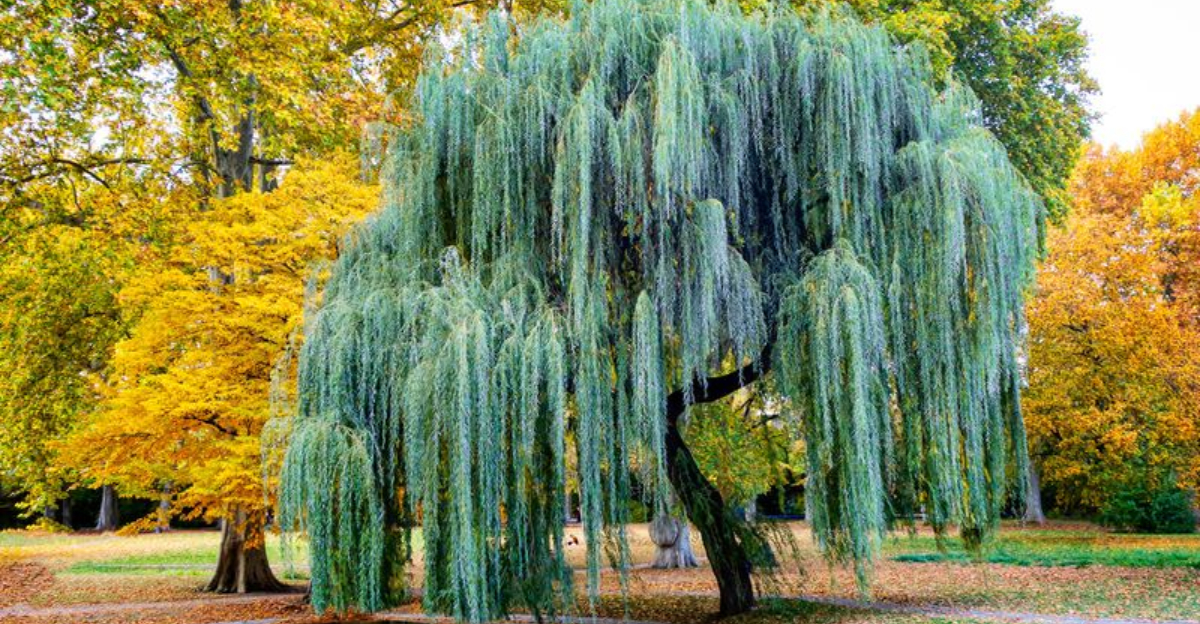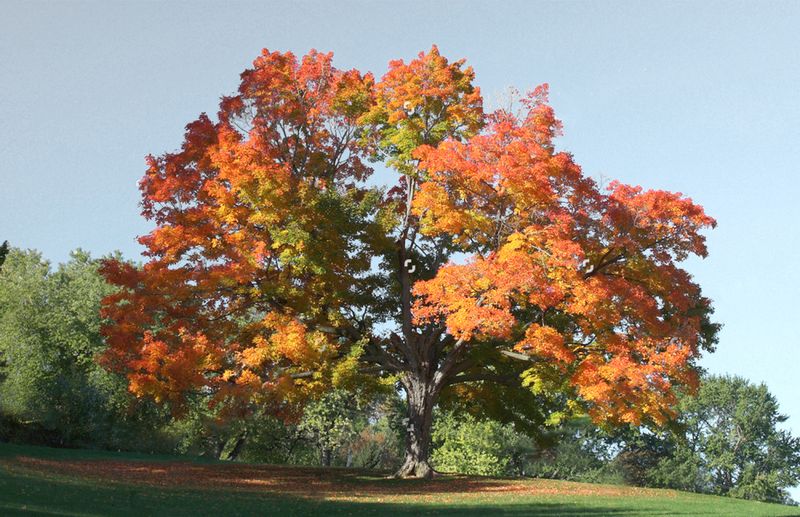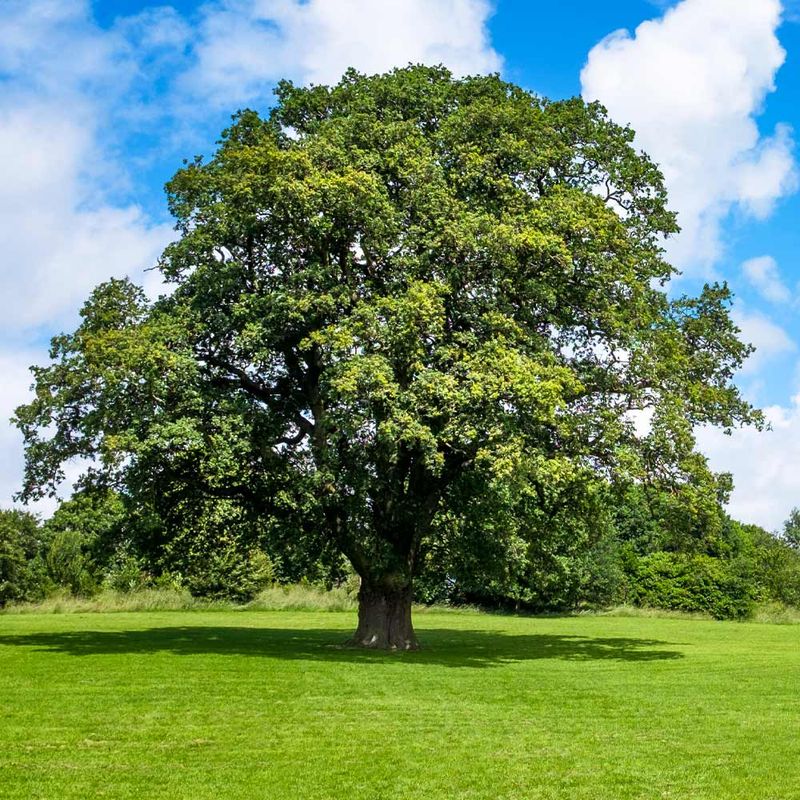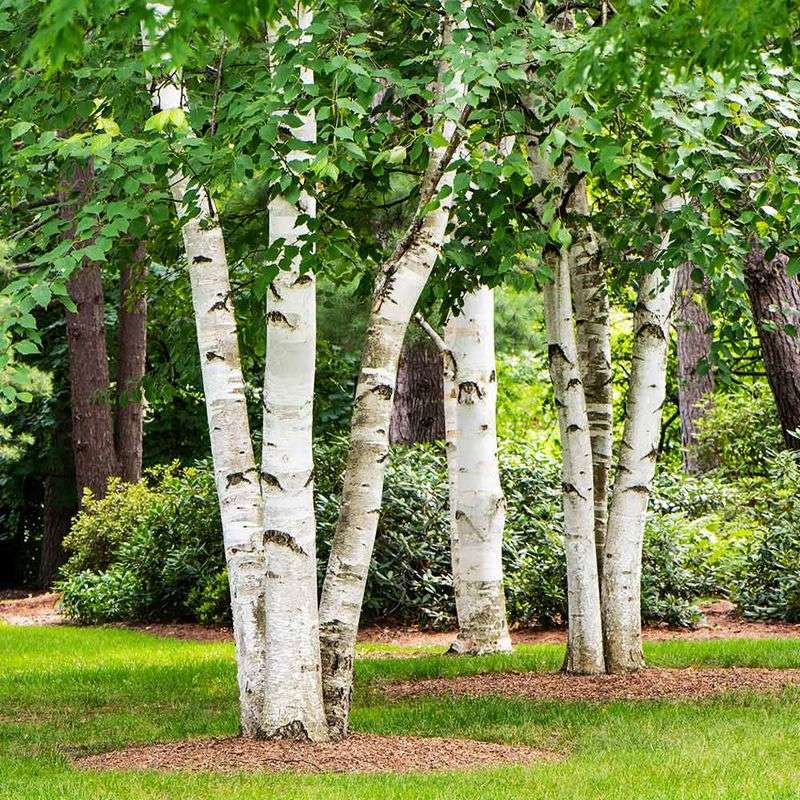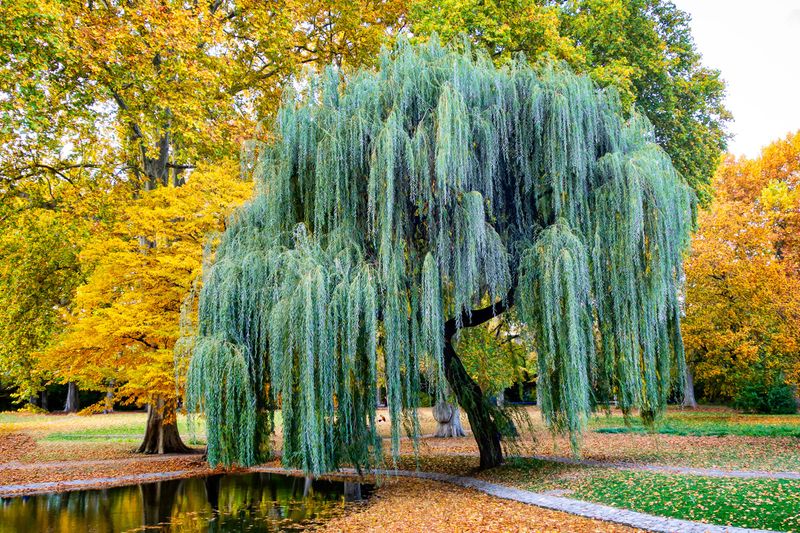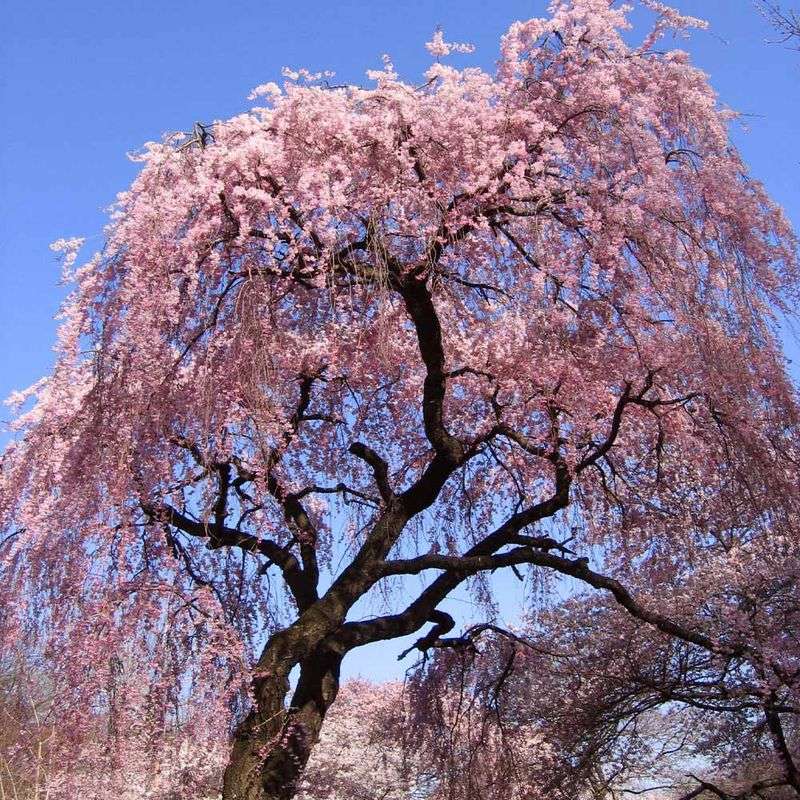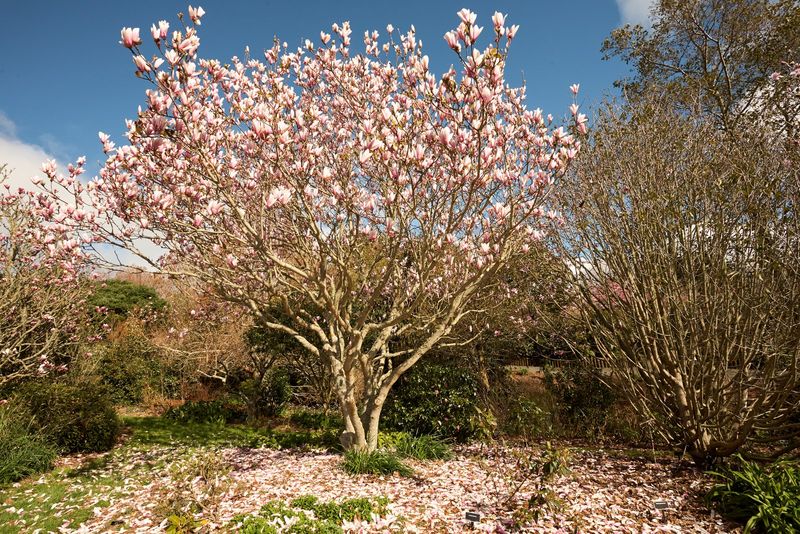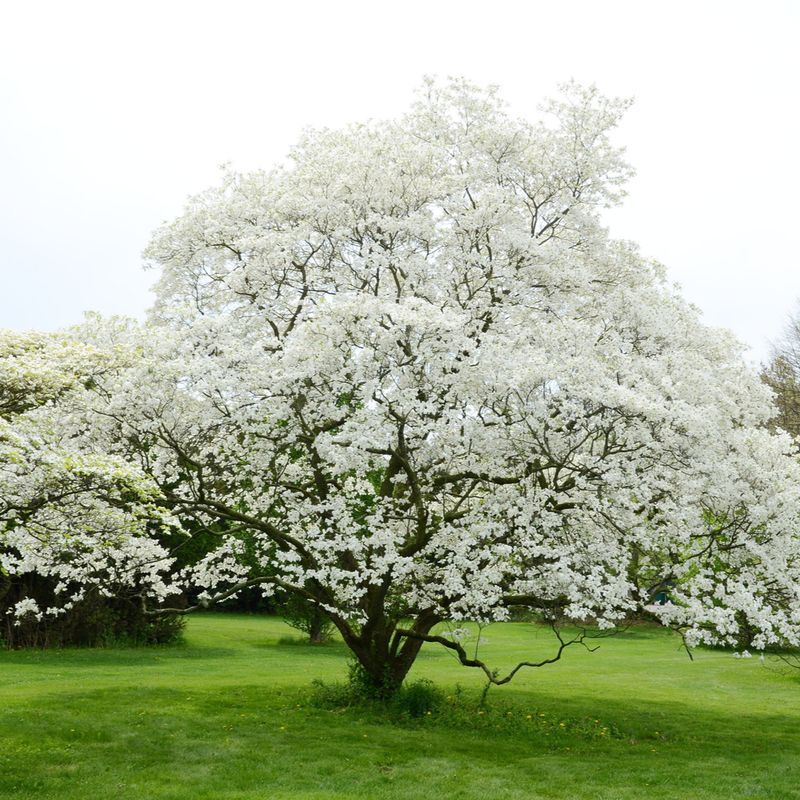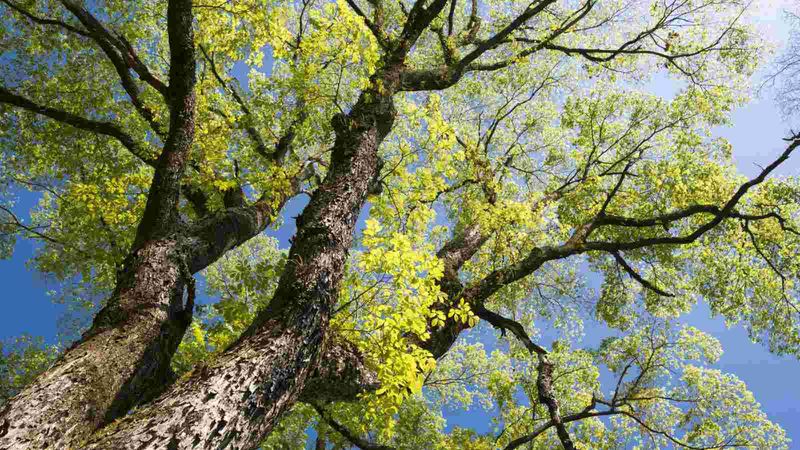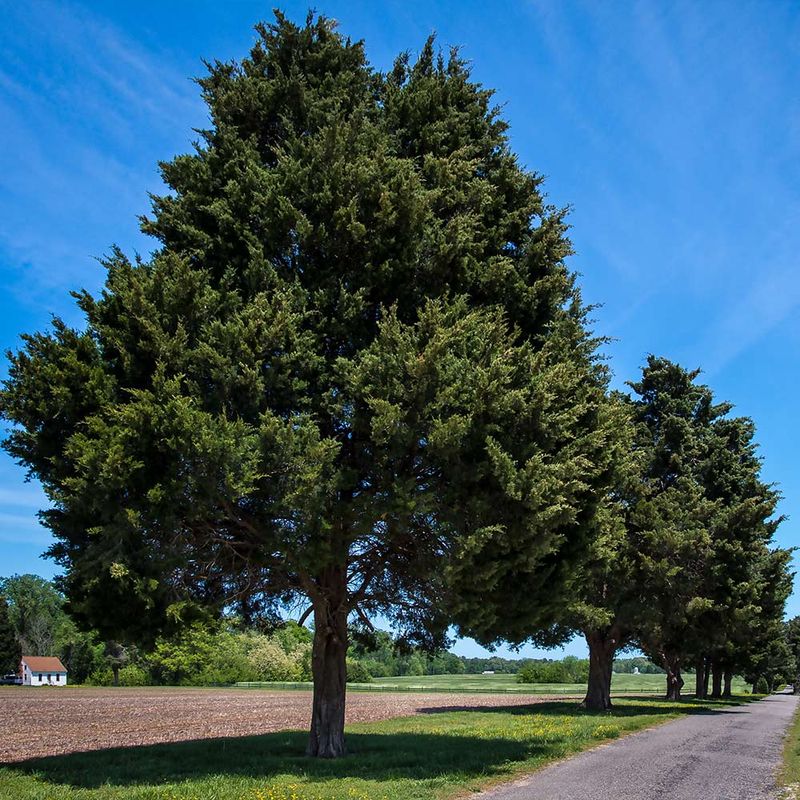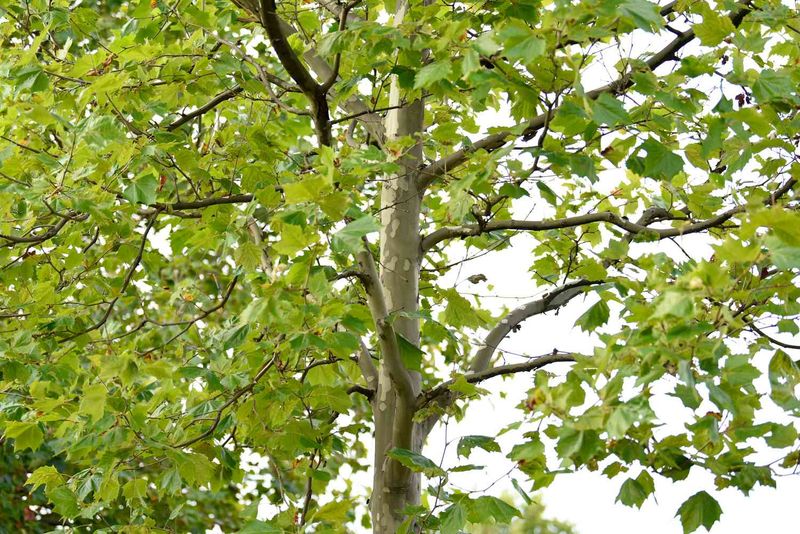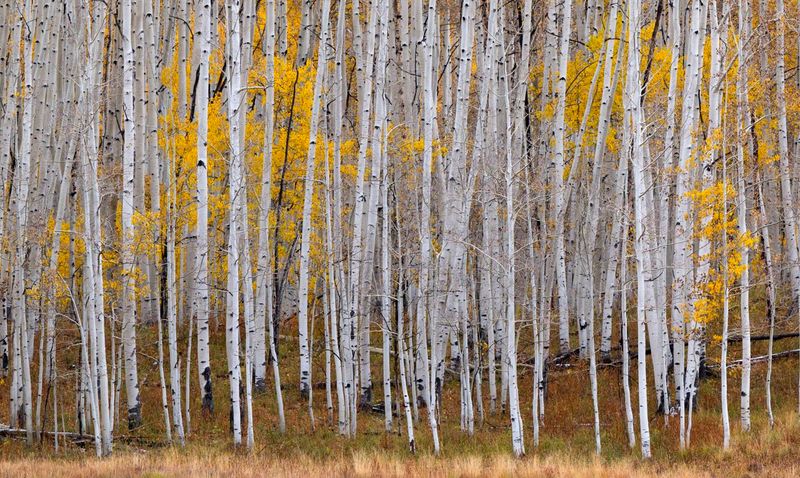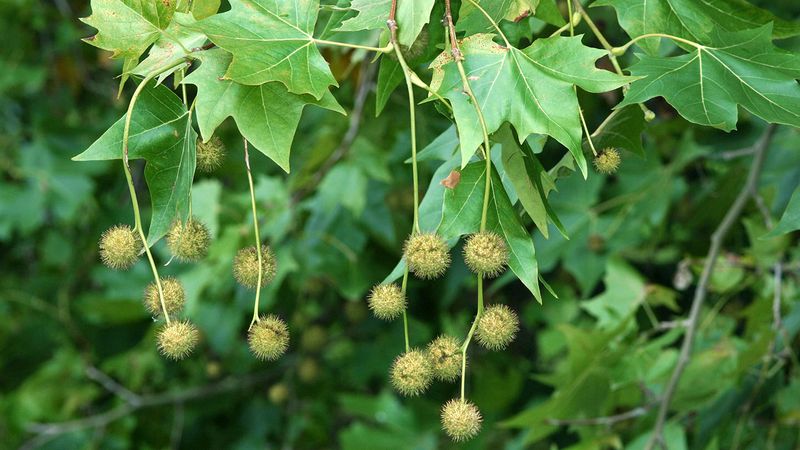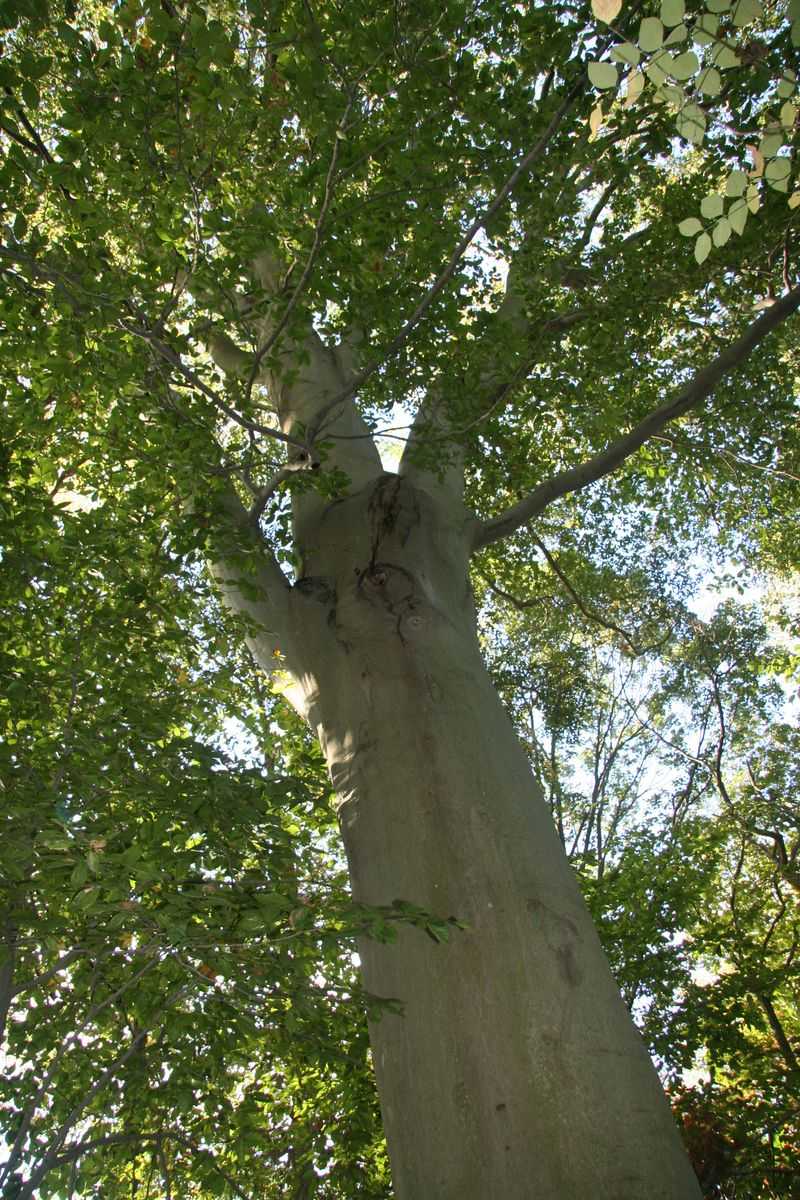Enhancing the aesthetic appeal and functionality of your garden begins with the careful selection of shade trees. These natural canopies offer not just beauty but also cooling relief, creating serene outdoor spaces.
Whether you’re looking for fast-growing varieties or ornamental beauties, finding the right fit for your landscape can transform your garden into a lush sanctuary.
Below, explore 15 exceptional shade trees that promise to elevate your garden’s charm, each with unique characteristics and benefits tailored to diverse gardening needs.
1. Maple Tree
The maple tree is renowned for its stunning fall foliage. Its leaves transform into brilliant shades of red, orange, and yellow, captivating onlookers. Planted in a spacious garden, it serves as a striking focal point.
Maples are adaptable to various soil types but thrive best in well-drained soil with ample sunlight. Regular pruning helps maintain their shape and encourages healthy growth.
These trees also provide ample shade, making them perfect for creating a cool and inviting outdoor area. Their majestic presence enhances any landscape with elegance.
2. Oak Tree
Oak trees are symbols of strength and longevity. Their sturdy branches and dense foliage provide extensive shade, ideal for large gardens.
These trees adapt well to different soil conditions, though they prefer acidic, well-draining soil. Regular watering during dry spells ensures optimal growth.
The oak’s impressive stature and lush canopy create a serene environment, inviting wildlife like squirrels and birds. Its timeless beauty and durability make it a favored choice for enhancing garden landscapes with grace and grandeur.
3. Birch Tree
The birch tree stands out with its distinctive white bark and delicate leaves. It adds an elegant touch to any garden, especially when planted near water features like ponds.
Birches prefer cooler climates and moist, well-drained soil. They thrive when given plenty of sunlight and space to grow.
These trees provide moderate shade, perfect for gardens needing light cover. With its graceful appearance and unique texture, the birch tree enriches garden aesthetics, offering a tranquil atmosphere for relaxation.
4. Willow Tree
The willow tree is famous for its graceful, drooping branches. Often found by water, it creates picturesque scenes in gardens.
Willows grow best in moist soil and require ample water to flourish. They can adapt to most environments but thrive near rivers or lakes.
This tree offers excellent shade, creating a peaceful retreat under its canopy. Its romantic silhouette and gentle rustling leaves bring a sense of calm, making it a sought-after addition for gardens aiming for serenity.
5. Cherry Blossom Tree
Cherry blossom trees are celebrated for their breathtaking springtime blooms. Their pink and white flowers create a spectacle that attracts visitors worldwide.
Ideal for small to medium gardens, these trees prefer well-draining soil and full sun. Adequate watering and shelter from strong winds ensure vibrant displays.
While they offer moderate shade, their primary appeal lies in their visual beauty. The fleeting blossoms symbolize renewal and beauty, making the cherry blossom tree a beloved choice for adding charm and elegance to gardens.
6. Magnolia Tree
Magnolia trees captivate with their large, fragrant blooms. Known for their stunning white or pink flowers, they are a favorite in southern gardens.
They thrive in rich, well-drained soil and prefer sunny or partially shaded locations. Regular pruning helps maintain their shape and promotes flowering.
Providing ample shade, magnolias create enchanting garden spaces. Their sweet fragrance and lush foliage offer sensory delight, enhancing garden ambiance with sophistication and charm.
7. Dogwood Tree
Dogwood trees are cherished for their delicate blossoms and vibrant autumn foliage. Their white and pink flowers bloom in spring, adding elegance to gardens.
These trees prefer well-drained, acidic soil and benefit from partial shade. Consistent moisture supports their growth and flowering.
Dogwoods provide light shade, ideal for gardens with mixed plantings. Their picturesque appearance and seasonal interest make them a versatile choice, enhancing garden beauty throughout the year.
8. Elm Tree
Elm trees are known for their stately presence and broad canopies. Their lush leaves offer significant shade, making them suitable for urban gardens.
Elms adapt to a variety of soil types but thrive best in well-drained conditions with regular watering. Pruning helps maintain their iconic vase shape.
These trees support wildlife and add a sense of grandeur to landscapes. Their resilience and shade-making capability make them an enduring favorite among gardeners seeking to create inviting outdoor spaces.
9. Cedar Tree
Cedar trees are admired for their height and aromatic wood. Their dense foliage provides excellent shade, ideal for mountain gardens.
They thrive in well-drained soil and prefer sunny locations. Once established, cedars require minimal maintenance, making them a practical choice.
The cedar’s evergreen nature adds year-round beauty, while its scent enhances garden environments. Known for their strength and durability, these trees offer both aesthetic appeal and practical benefits in landscaping.
10. Sycamore Tree
Sycamore trees are distinguished by their mottled bark and broad leaves. They provide ample shade, suitable for expansive gardens.
These trees thrive in moist, well-drained soil and adapt well to various climates. Regular care ensures their robust growth.
Sycamores add texture and depth to garden landscapes with their unique appearance. Their towering presence and generous shade coverage make them a popular choice for enhancing garden appeal with natural grandeur.
11. Aspen Tree
Aspen trees are known for their shimmering leaves that dance in the breeze. They thrive in high-altitude gardens where they receive full sun and well-drained soil.
Aspens grow in clusters, providing light shade and adding a dynamic aspect to landscapes. Their pale bark and quaking foliage offer visual interest.
These trees are relatively low-maintenance and adapt well to cold climates. Aspens bring a touch of elegance to gardens, creating a lively and inviting atmosphere.
12. Plane Tree
Plane trees are recognized for their broad canopies and distinctive bark. Their ability to provide widespread shade makes them excellent for historic gardens.
These trees prefer deep, fertile soil and regular watering. Pruning helps maintain their health and appearance.
Planes are often seen in urban settings due to their pollution tolerance. They add architectural beauty and practicality to garden spaces, blending utility with visual appeal.
13. Beech Tree
Beech trees are appreciated for their smooth gray bark and dense foliage. They offer ample shade, perfect for formal garden settings.
Beeches thrive in well-drained soil and partial shade, with regular watering supporting their growth. Pruning is rarely needed.
Their majestic form and seasonal leaf color transitions add elegance to landscapes. Beech trees enhance garden aesthetics, offering a classic and enduring appeal.
14. Poplar Tree
Poplar trees are fast-growing, with slender trunks and vibrant leaves. They are often planted in rows to create elegant avenues or windbreaks.
These trees prefer moist, well-drained soil and full sun exposure. Their rapid growth requires regular maintenance.
Though they provide moderate shade, poplars are chosen for their height and uniformity. They add structure and movement to gardens, drawing the eye upwards and enhancing the landscape’s vertical dimension.
15. Linden Tree
Linden trees are known for their heart-shaped leaves and fragrant blossoms. They create inviting shade, ideal for park settings.
Lindens thrive in well-drained soil and full sun, with regular watering promoting their lush growth. Their fragrant flowers attract pollinators, enriching garden biodiversity.
These trees add beauty and sensory delight to landscapes. Their gentle presence and shade-making ability make lindens a cherished addition to gardens, providing both aesthetic charm and ecological benefits.
